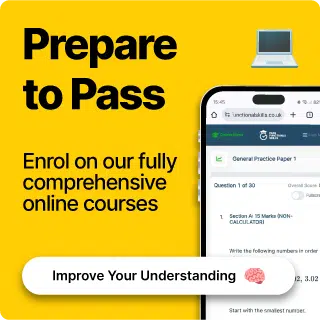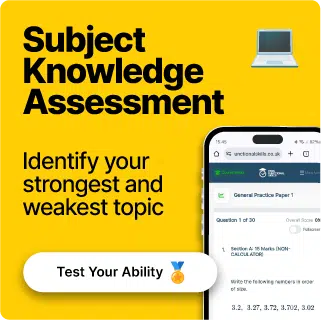Writing: Fantastic Finalising
Finalising
There are a few ways to ensure that the final version of your writing is clear and consistent for your readers.
These include: using paragraphs, planning your answer, using capital letters and more…
Make sure you are happy with the following topics before continuing:
Paragraphing
The main purpose of paragraphing is to break a text up into chunks.
As a result, the writing will flow better, and the reader is able to follow the text more easily.
When you are writing, it can be useful to make a brief plan for each paragraph, so all the relevant information stays together.


How do you do this?
Well, within each paragraph, you should use the P.E.E method:
P oint
E vidence
E xplanation
This means you should start with your overall point, then give an example.
You should then expand on and explain your point.
Follow Our Socials
Our Facebook page can put you in touch with other students of your course for revision and community support. Alternatively, you can find us on Instagram or TikTok where we're always sharing revision tips for all our courses.
Planning your answer
How?
Having a plan will make it easier to include key points when you are writing your final text.
Gathering thoughts beforehand will also ensure the question is answered properly and has a clear structure.
Your plan does not have to be in any particular format, whatever works for you!
It could be a checklist, bullet points, a mind map or even rough notes.
Helpful Details to Include
It may also be helpful to number your points and order you plan, so you can write your text as you go along.
A plan will also need to be tailored to specific styles.
In other words, the audience and purpose will need to be considered for different text types.
For example, whether to use formal or informal language.


Capital Letters
Make sure all of the sentences in your text begin with a capital letter.
Always use a capital letter after these forms of punctuation:
- A full stop (.)
- An exclamation mark (!)
- A question mark (?)
However, you can also use capital letters in the middle of sentences.
For example:
‘I‘ and proper nouns such as days of the week or names of people always need a capital letter, as seen in the review.
Final Things to Consider
A) It is important that writing is neat.
If the reader cannot read your writing, your communication will not be effective.
This will also impact your marks in the exam.
To help with this, try to stay within the lines and write clearly.
B) It is also important to proofread your work after writing.
This way, you can spot any mistakes you may have made, and ensure that all parts of the question are addressed.
Additional Resources
Exam Tips Cheat Sheet
FS Level 2Specification Points Covered
L1.19 – Use a range of punctuation correctly (e.g. full stops, question marks, exclamation marks, commas, possessive apostrophes)
L1.20 – Use correct grammar (e.g. subject-verb agreement, consistent use of different tenses, definite and indefinite articles)
L1.21 – Spell words used most often in work, study and daily life, including specialist words
L1.22 – Communicate information, ideas and opinions clearly, coherently and accurately
L1.23 – Write text of an appropriate level of detail and of appropriate length (including where this is specified) to meet the needs of purpose and audience
L1.24 – Use format, structure and language appropriate for audience and purpose
L1.25 – .Write consistently and accurately in complex sentences, using paragraphs where appropriate
L2.20 – Punctuate writing correctly using a wide range of punctuation markers (e.g. colons, commas, inverted commas, apostrophes and quotation marks)
L2.21 – Use correct grammar (e.g. subject-verb agreement, consistent use of a range of tenses, definite and indefinite articles) and modality devices (e.g. to express probability or desirability)
L2.22 – Spell words used in work, study and daily life, including a range of specialist words
L2.23 – Communicate information, ideas and opinions clearly, coherently and effectively
L2.25 – Organise writing for different purposes using appropriate format and structure (e.g. standard templates, paragraphs, bullet points, tables)
L2.28 – Construct complex sentences consistently and accurately, using paragraphs where appropriate
Writing: Fantastic Finalising Worksheet and Example Questions
Writing: Fantastic Finalising L2
FS Level 2NewOfficial PFSWriting: Fantastic Finalising L1
FS Level 1NewOfficial PFSRevision Products
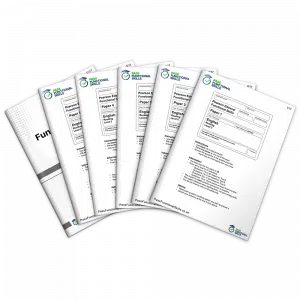
Functional Skills English Level 2 Practice Papers
This comprehensive set of 10 Functional Skills English Level 2 Practice Papers (5 reading papers + 5 writing) is a great way to revise for your upcoming reading and writing exams. These papers have been specifically tailored to match the structure, format and question types used by each of the main exam boards for functional skills English.
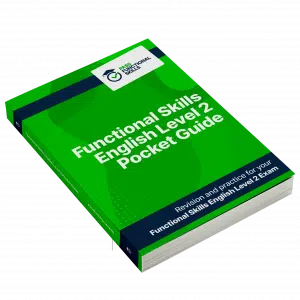
Functional Skills English Level 2 Book
Revise and practice for your functional skills English level 2 exam. All topics covered in this compact functional skills English level 2 book.
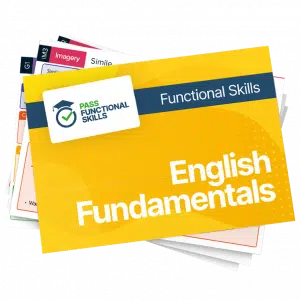
Functional Skills English Level 2 Revision Cards
Revise for functional skills English level 2, with these English level 2 fundamentals revision cards. Covering the building blocks of the essential areas of the level 2 exam.

